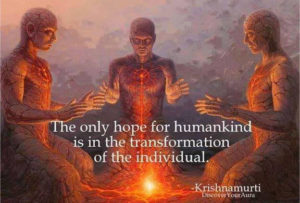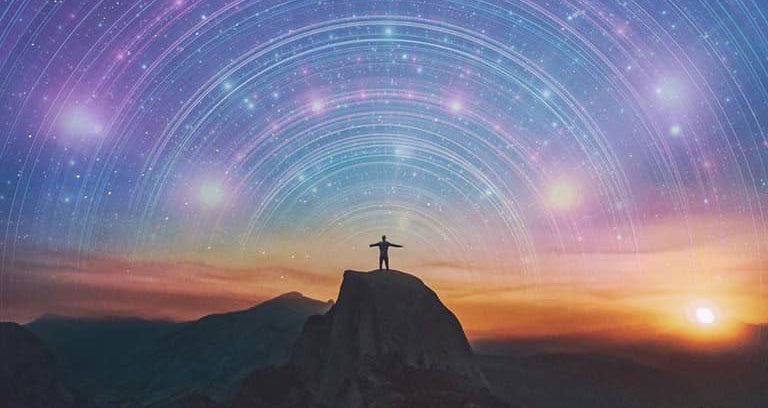Throughout the centuries, ‘ego death’ has been given many names by many different traditions. It’s been described as a feeling of deep oneness with the cosmos, universe, Monad, Tao, or whichever spiritual namesake fits one’s bill. Philosophers, transcendentalists, and psychologists have described it as a state of mind, or ‘no mind,’ during which some exceptionally weird stuff can and does occur. This includes loss of attachment to any sense of self, while witnessing the entire history of the universe unfold before their minds eye in a single split second.
Although the terminology differs, there’s countless texts from eastern traditions that refer to this state. It’s long been known that inducing it can be achieved through meditation, mantras, mudras, and of course, psychedelics. However, the western conversation began in earnest in the 1950’s with the publication Aldous Huxley’s “Doors of Perception.” Since that time, mainstream science has used brain mapping techniques to produce data suggesting that when the correct neurological switches are flicked, the part of the brain that houses the ego, which deals with space, time, past, and future, does indeed appear to shut down. Yet despite ongoing research, and some truly intriguing findings, Huxley’s descriptions remain the best guesstimate as to what is occurring.
Nowadays, we have a rough understanding of how the brain receives, absorbs, and processes information. More importantly, we know that the brain has either evolved to ignore, or actively chooses to filter out around 99.9999 percent of that data, which is why we can neither see nor sense radio waves, or UV light, and so much more. The list goes on. If a person were to somehow find themselves able to absorb all this data, they’d probably end up in a mental institution shortly thereafter. Huxley loosely named the neurological mechanism that somehow prevents this info from gaining entry, as the “reducing valve.” As powerful psychedelics, including iboga, begin to enter the bloodstream and brain, the neuromechanical gatekeeper responsible for overseeing what gets in begins to zone out. Eventually, it abandons its post altogether. The incoming data, which is usually a mere trickle, becomes a tsunami, exposing the individual to what Huxley termed ‘The Mind at large.,’ Huxley described this experience as the closest “a finite mind can ever come to perceiving everything that is happening everywhere in the universe.”

Let’s consider the term ‘egocentrism,’ in the truest sense, to mean the brain’s survival based need to divide things, including ourselves and those around us into divisible units and increments. What happens when this part of the brain starts to get wobbly, or ceases functioning at all, eclipsed by the entire data stream pouring from the Mind at Large? Confronting such raw power is, as Carl Jung pointed out, “always a defeat for the ego.” In any encounter with such profound sensory and perceptual overload, the mind simply doesn’t have the processing power to uphold its association with the mind, body and intellect; AKA the ‘ego.’ which doesn’t stand a chance.
If this sounds like a truly awesome experience to undergo, that’s because it most definitely is. It is an experience that many who have undergone an iboga experience will testify is very real, truly overwhelming, and returns them with little choice but to reevaluate everything they thought they knew about the mind, spirituality, and the link between the two.



